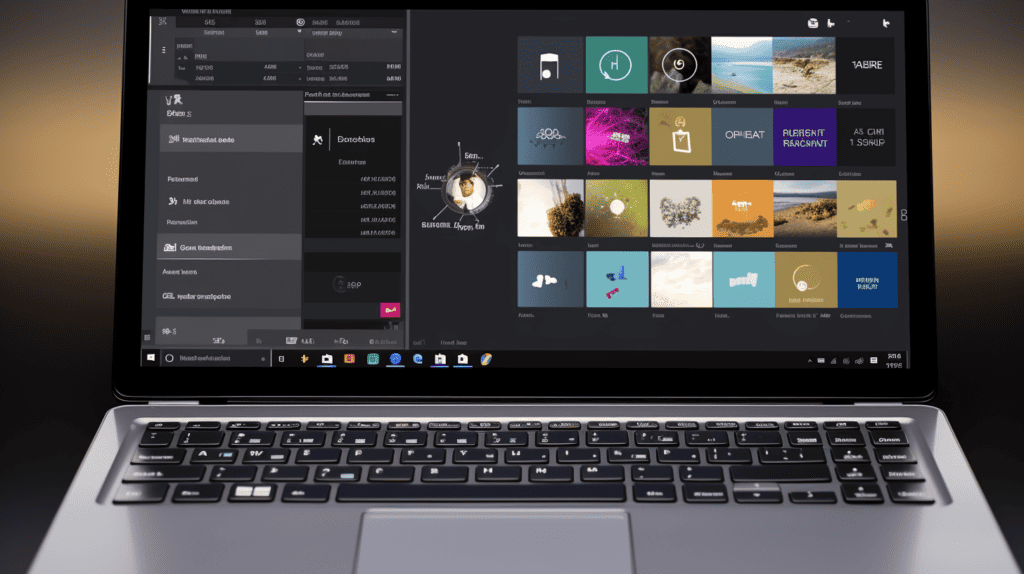As a student, managing time effectively can be a daunting task. With multiple assignments, coursework, and extracurricular activities, it can be challenging to prioritize tasks and achieve academic goals. However, implementing effective time management strategies can be a game-changer for students looking to stay organized, reduce stress, and improve their academic performance.
In this article, I will address common time management questions that students may have and provide practical tips and solutions to help them manage their time more efficiently. From prioritizing tasks effectively to balancing academic and personal life, this article offers a comprehensive guide to mastering time management skills for students.
Key Takeaways:
- Effective time management is crucial for students to achieve academic success and reduce stress.
- Common time management challenges for students include procrastination, distractions, and lack of motivation.
- Implementing practical time management techniques such as creating a study schedule and using productivity tools can help students manage time more efficiently.
Why is Time Management Important for Students?
As a student, effective time management skills are critical to academic success. This means being able to manage your time efficiently so that you can balance your academic responsibilities with your personal life.
Good time management can help you:
- Stay organized and on track with your assignments and deadlines
- Reduce stress and anxiety related to academic work
- Improve your overall productivity and academic performance
As you navigate through your academic journey, it’s important to develop time management techniques that work for you. Here are some practical tips to help you manage your time effectively:
- Set realistic goals and prioritize tasks: Identify the tasks that are urgent and important and prioritize them based on their deadlines and level of difficulty. Break down larger tasks into smaller, manageable steps that you can tackle over time.
- Establish a routine: Create a study schedule that aligns with your personal schedule. Allocate specific times of the day for studying and other academic activities.
- Minimize distractions: Avoid multitasking and eliminate any potential distractions during your study time, such as social media, TV or your phone.
- Take breaks: Taking short breaks during your study sessions can help boost your productivity and refresh your mind. Use breaks to stretch, grab a snack, or engage in a quick activity that helps you relax.
- Utilize time management tools: Technology can be a helpful tool for managing your time effectively. Digital calendars and task management apps can help you stay organized and on track with your deadlines and assignments.
By implementing these time management techniques, you can establish good habits that will serve you well throughout your academic journey. In the next section, we’ll explore how you can prioritize tasks effectively to make the most of your study time.

How Can Students Prioritize Tasks Effectively?
As a student, it can be challenging to manage your time effectively. With so many responsibilities, it’s easy to feel overwhelmed and unsure of where to start. One of the most crucial aspects of effective time management is prioritizing tasks. By prioritizing your tasks, you can ensure that you’re focusing on the most important and urgent activities. Here are some tips to help you prioritize effectively:
- Identify urgent and important tasks: Start by making a list of all the tasks you need to complete. Then, prioritize them according to their urgency and importance. Urgent tasks require immediate attention, while important tasks are those that contribute to your long-term goals.
- Focus on one task at a time: Multitasking can be tempting, but it often leads to decreased productivity and efficiency. Instead, try to focus on one task at a time until it’s completed.
- Use the Eisenhower Matrix: This matrix is a simple tool that can help you prioritize your tasks. It categorizes tasks into four quadrants based on their urgency and importance. The quadrants are: urgent and important, not urgent but important, urgent but not important, and not urgent or important. Use this matrix to determine which tasks you should tackle first.
By prioritizing your tasks, you can ensure that you’re making the most of your time. However, prioritizing isn’t enough on its own; you also need to manage your time effectively.
Developing Time Management Habits for Success
As a student, developing good time management habits is critical to achieving academic success. Here are some tips to help you establish effective time management routines:
| Tip | Description |
|---|---|
| Create a study schedule | Plan your study time in advance and stick to a schedule. This will help you stay organized and avoid procrastination. |
| Organize your study materials | Keep your notes, textbooks, and study materials in order to save time and focus on studying, rather than looking for materials. |
| Establish a productive study environment | Find a space that is conducive to studying, free from distractions and comfortable for long periods of concentration, such as a library or a designated study area at home. |
By following these tips, you can develop effective time management habits that will help you achieve your academic goals and set you up for long-term success.

Effective Time Management Tools for Students
As a student, you have many responsibilities and deadlines to meet. Fortunately, there are various time management tools that can help you stay organized and on top of your tasks. Here are some of the most effective time management tools for students:
1. Digital calendars
Digital calendars such as Google Calendar or Apple Calendar can be incredibly useful for keeping track of deadlines, appointments, and other important dates. You can set up reminders and notifications to make sure you never miss an important event or due date.
2. Task management apps
Task management apps like Trello or Asana can help you create to-do lists and keep track of your progress on various tasks. These tools allow you to categorize and prioritize your tasks, making it easier to focus on what needs to be done first.
3. Productivity tools
Productivity tools like Pomodoro Timer or Forest can help you stay focused and avoid distractions. These tools use techniques such as time blocking and the Pomodoro Technique to help you work efficiently and productively.
4. Time-tracking apps
Time-tracking apps like RescueTime or Toggl can help you monitor how much time you are spending on different tasks and activities. These tools can provide valuable insights into how you can better manage your time and identify areas where you may be wasting time.
By using these time management tools, you can effectively manage your study time, meet your deadlines, and achieve your academic goals. Experiment with different tools to find what works best for you and incorporate them into your daily routine.

Overcoming Time Management Challenges
As a student, I understand the challenges that come with managing time effectively. Distractions, procrastination, and multitasking can all make it difficult to stay on track with assignments and deadlines.
One of the most effective strategies for overcoming these challenges is to create a conducive study environment. This means finding a quiet space free from distractions such as social media, television, or other people. I recommend turning off notifications on your phone or using a website blocker to limit your access to distracting websites.
Another strategy is to break down large tasks into smaller, more manageable ones. This can help prevent procrastination by making assignments seem less overwhelming. I suggest creating a to-do list with specific, achievable tasks that you can check off as you go.
It’s also important to avoid multitasking, as studies have shown that it can actually decrease productivity and increase stress levels. Instead, focus on one task at a time and give yourself breaks in between to maintain focus and avoid burnout.
Finally, don’t be too hard on yourself if you slip up or make mistakes. Developing effective time management skills takes practice and patience. Celebrate your successes and learn from your setbacks to continue improving.
Strategies for Balancing Academic and Personal Life
As a student, it can be challenging to manage academic responsibilities while also maintaining a healthy personal life. However, achieving a balance between the two is crucial for both academic success and personal well-being. Here are some strategies that have helped me:
- Set priorities: Determine which activities are most important and allocate time accordingly. Remember to include time for rest and relaxation.
- Create a schedule: Make a daily or weekly plan that outlines academic tasks, extracurricular activities, and personal time. This helps ensure that important tasks don’t get overlooked.
- Stay organized: Keep track of deadlines and appointments in a planner or digital calendar. Use reminders to stay on top of important tasks.
- Practice time management: Use time management techniques to make the most of study sessions and avoid wasting time. This can include techniques such as the Pomodoro method or breaking tasks into smaller, manageable chunks.
- Take care of yourself: It’s important to prioritize self-care to maintain physical and mental health. This includes getting enough sleep, exercise, and spending time with friends and family.
- Be flexible: Life is unpredictable, and sometimes unexpected events can throw off even the most carefully planned schedules. Learning to adapt and adjust priorities when necessary is an important skill for achieving balance.
By incorporating these strategies into my own life, I have been able to manage my academic responsibilities while still making time for personal interests and relationships. Remember, achieving balance is an ongoing process that requires effort and intentionality. With practice, it becomes easier to navigate the demands of academic and personal life while maintaining overall well-being.

Effective Time Management Techniques for Test Preparation
Preparing for exams can be overwhelming, especially when you have multiple tests to study for. However, with effective time management techniques, you can efficiently prepare for exams and achieve better results. Here are some tips that have worked for me:
- Create a study plan: Before you start studying, create a detailed plan that outlines what topics you need to cover, how much time you will dedicate to each topic, and when you plan to take breaks. This will help you stay organized and on track.
- Break down study material: Rather than trying to study an entire chapter or topic at once, break it down into smaller sections. This will make it easier to digest the material and prevent burnout.
- Use active recall: Rather than passively reading through your notes and textbooks, actively recall the information by testing yourself through quizzes or flashcards. This will help you retain the information better.
- Try spaced repetition: Review the material at set intervals, gradually increasing the time between reviews as you become more familiar with the content. This will help you remember the material in the long term.
- Manage test anxiety: Anxiety can be detrimental to your test performance, so take time to manage your stress levels before the exam. Practice deep breathing exercises, listen to calming music, and visualize yourself succeeding on the test.
- Optimize focus: Find a quiet, distraction-free environment to study in, and remove any potential distractions such as your phone or social media. You can also try using ambient background noise or classical music to help you focus.
Remember, preparing for exams is not just about memorization or cramming information into your brain. It’s about understanding the material and learning how to apply it effectively. By implementing these time management techniques, you can prepare for your tests more efficiently and ultimately achieve better results.

Strategies for Balancing Academic and Personal Life
As a student, it can be challenging to balance academic commitments with personal interests and social activities. However, achieving a balance between these aspects is crucial for maintaining good health and overall well-being.
To effectively manage time between academic and personal life, it is important to prioritize activities and set achievable goals. Creating a study schedule that incorporates time for leisure and self-care can help ensure that all aspects of life are given adequate attention.
Effective time management also involves identifying and eliminating distractions. During study time, it is important to avoid checking social media or engaging in other non-study-related activities. Finding a quiet and conducive study environment can further enhance focus and productivity.
Engaging in regular exercise, practicing mindfulness, and scheduling time for social activities are vital in maintaining a healthy balance between academic and personal life. These activities can help reduce stress and increase motivation and overall happiness.
It may also be helpful to seek support from friends and family members to create a supportive environment. Knowing that you have a support system can help reduce stress and increase motivation for both academic and personal pursuits.
Conclusion on Time Management Questions For Students
In conclusion, effective time management is a crucial skill for students to develop and apply in their academic and personal life. By implementing the tips and strategies provided in this article, students can improve their study habits, reduce stress, and achieve their academic goals.
It is important to remember that time management is a continuous process that requires consistency and adaptability. Students should strive to maintain a routine and regularly assess and adjust their time management practices to ensure their effectiveness.
Remember, the key to successful time management is not just about managing time but also allocating time to prioritize self-care, social activities, and personal interests. By achieving a balance between academic commitments and personal life, students can promote a healthy and well-rounded academic experience.
So, take control of your time and start implementing effective time management practices today. Your future self will thank you!
FAQ on Time Management Questions For Students
Q: Why is time management important for students?
A: Time management is crucial for students because it helps them stay organized, reduce stress, and improve productivity. Effective time management skills allow students to make the most of their study time and achieve their academic goals.
Q: How can students prioritize tasks effectively?
A: Students can prioritize tasks effectively by setting priorities, identifying urgent and important tasks, and avoiding procrastination. Managing study time effectively is essential for students to stay focused and complete their academic responsibilities.
Q: What are some time management habits for success?
A: Students can develop time management habits for success by creating a study schedule, organizing study materials, and establishing a productive study environment. These habits ensure long-term success in academic endeavors.
Q: What time management tools are effective for students?
A: Digital calendars, task management apps, and other productivity tools are beneficial for students in managing their time. These tools help students stay organized and on track with assignments and deadlines.
Q: How can students overcome time management challenges?
A: Students can overcome time management challenges by addressing distractions, avoiding multitasking, and combating procrastination. Creating a conducive environment for focused studying is essential for effective time management.
Q: What strategies can help students balance academic and personal life?
A: Achieving a balance between academic commitments and personal life requires effective time management. Students can allocate time for studying, extracurricular activities, and personal relationships to promote a healthy and well-rounded academic experience.
Q: What are effective time management techniques for test preparation?
A: Students can use time management techniques such as creating a study plan, breaking down study material, and utilizing effective study techniques like active recall and spaced repetition. Managing test anxiety and optimizing focus during exam preparation are also important.
Q: How can students maintain consistency in time management practices?
A: Maintaining consistency in time management practices involves establishing a routine and sticking to it. Students can stay motivated, manage setbacks, and adapt time management techniques to changing circumstances to ensure consistent and effective time management.





Leave a Reply